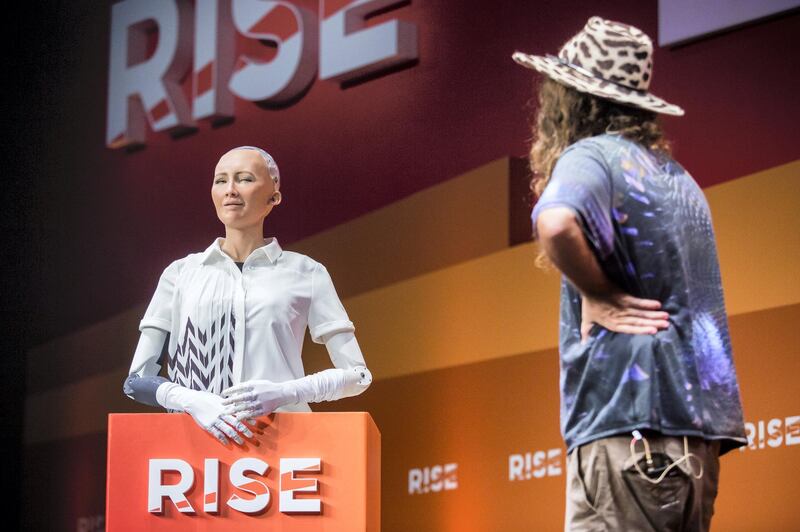Sovereign wealth funds (SWFs) and other asset managers in the Arabian Gulf should establish dedicated 'thematic investing' teams to identify long-term opportunities from technology-driven trends such as robotics and artificial intelligence (AI), according to an advisor at Bank of America Merrill Lynch (BoAML).
"Asset owners across the world, be it petro-funds or SWFs, are becoming increasingly systematic in terms of the way they take these trends on board," said Sarbjit Nahal, head of thematic investing strategy at BoAML, in an interview with The National.
“We’ve seen far more by way of dedicated thematic investing teams being created to do deep dives on global trends, and investors are taking major stakes in companies off the back of this.
“That type of systemic thinking and creation of teams has happened in other regions of the world and it’s likely to be followed here, particularly given the importance of [some of the national funds].”
AI is expected to push global GDP up to 14 per cent higher by 2030 than it is now – the equivalent of an additional US$15.7 trillion – according to forecasts from PwC.
The consultancy notes that while there could be an initial loss of some jobs, AI would drive productivity gains from businesses automating processes and augmenting their labour force, with increased consumer demand for personalised and higher quality AI-enhanced products and services.
Gulf SWFs, including Abu Dhabi’s Mubadala Investment Company and Saudi Arabia’s Public Investment Fund (PIF), have shown significant appetite to invest in companies, products and services born out of new technologies and demographic trends.
This week, Mubadala chief executive Khaldoon Al Mubarak said the company was looking to increase its investment in Japanese telecoms firm SoftBank's US$100 billion Vision Fund, with a view to gaining greater exposure to fast-growing global technology firms. He said Mubadala was actively seeking investment opportunities in AI, virtual reality and e-commerce.
PIF, which also participates in the Vision Fund, has stakes in fast-growing companies such as transport app Uber, and plans greater exposure to technology in line with Saudi Arabia's Vision 2030 economic diversification strategy.
_____________
Read more:
[ Artificial intelligence will enhance us, not replace us ]
[ Softbank third quarter profits top estimates ]
[ Mubadala invests Dh82.5 million in aerospace research and design ]
_____________
“What we’re finding is that capital is becoming increasingly thematic around the world,” Mr Nahal said. “There’s a move away from that biopic obsession with the quarterly results, towards better understanding of the long-term factors at play with regard opportunities and risks.”
Institutions in Asia, Europe and the US have created dedicated teams to examine such issues, including Singapore’s investment fund GIC, which has created the Integrated Strategies Group, and Canada Pension Plan (CPP), which has a 20-strong thematic investing team, Mr Nahal said.
“I think Gulf sovereign wealth funds are next [for setting up such teams]. Think about PIF, Vision 2030 and the sorts of things they’re moving towards. It very much sits within that space: the future of mobility, autonomous vehicles, robotics and AI,” Mr Nahal said.
He added: “From a macroeconomic perspective, we’re not seeing the same growth we did decade after decade from the 1950s to the 1990s. We are living in a world characterised by the 3 ‘Ds’ – disruption, notably technological disruption; demographics, and, debt, which is excessive in many parts of the world.
“Because of this, we’re finding investors increasingly need to think about establishing a longer term shopping list.” Asset managers AXA and Credit Suisse have even established dedicated robotics and AI funds to provide greater exposure to their clients, he added.
Virtual and augmented reality was the best performing business category in BoAML’s latest monthly Theme Watch report, with performance up 30.8 per cent on an annualised basis in November, according to Mr Nahal.
Robotics and AI was the second best performer, up 18.2 per cent, followed by the ‘bottom billions’ or microfinance sector, which was up 15.5 per cent.





